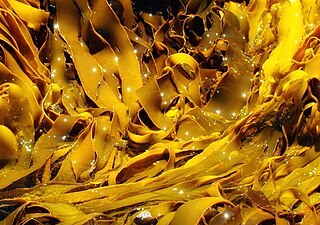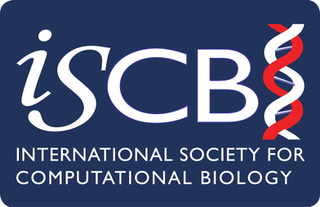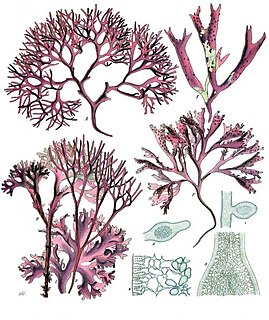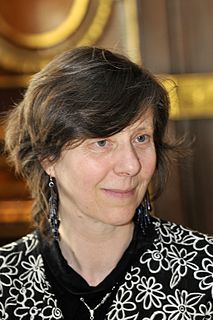
Phycology is the scientific study of algae. Also known as algology, phycology is a branch of life science.
Elsie May Burrows was an English botanist who made significant contributions to British postwar phycology. Her primary area of research was macroalgal ecology, focusing particularly on Fucus, a genus of brown algae, and Chlorophyta, a division of the green algae.
The history of phycology is the history of the scientific study of algae. Human interest in plants as food goes back into the origins of the species and knowledge of algae can be traced back more than two thousand years. However, only in the last three hundred years has that knowledge evolved into a rapidly developing science.

The Association for Slavic, East European, and Eurasian Studies (ASEEES) is a scholarly society dedicated to the advancement of knowledge about the former Soviet Union and Eastern and Central Europe. The ASEEES supports teaching, research, and publication relating to the peoples and territories within this area.
The Botanical Society of America (BSA) represents professional and amateur botanists, researchers, educators and students in over 80 countries of the world. It functions as a United States nonprofit 501(c)(3) membership society.

The International Society for Computational Biology (ISCB) is a scholarly society for researchers in computational biology and bioinformatics. The society was founded in 1997 to provide a stable financial home for the Intelligent Systems for Molecular Biology (ISMB) conference and has grown to become a larger society working towards advancing understanding of living systems through computation and for communicating scientific advances worldwide.

Red algae, or Rhodophyta, are one of the oldest groups of eukaryotic algae. The Rhodophyta also comprises one of the largest phyla of algae, containing over 7,000 currently recognized species with taxonomic revisions ongoing. The majority of species (6,793) are found in the Florideophyceae (class), and mostly consist of multicellular, marine algae, including many notable seaweeds. Red algae are abundant in marine habitats but are relatively rare in freshwaters. Approximately 5% of the red algae occur in freshwater environments with greater concentrations found in warmer areas. Except for two coastal cave dwelling species in the asexual class Cyanidiophyceae, there are no terrestrial species, which may be due to an evolutionary bottleneck where the last common ancestor lost about 25% of its core genes and much of its evolutionary plasticity.
The Gilbert Morgan Smith Medal is awarded by the U.S. National Academy of Sciences "in recognition of excellence in published research on marine or freshwater algae." It has been awarded every three years since 1979.
Mary Winifred Parke, FRS, was a British marine botanist and Fellow of the Royal Society (1972) specialising in phycology, the study of algae.
Una Vivienne Cassie Cooper is a New Zealand planktologist and botanist.
Michael Melkonian is a German botanist and professor of botany at the University of Cologne.
The Protein Society is an international, not-for-profit, scholarly society with the mission to provide forums for the advancement of research into protein structure, function, design and applications.

Vidyavati, former Vice-Chancellor, Kakatiya University, Warangal, Telangana, India was born on 15 September 1939, in Goud community. She is President of Phycological Society of India. She was honored by Telangana State Government as Eminent Women on 8 March 2017, on the occasion of "International Women's Day" celebrations.
Gopalasamudram Sitaraman Venkataraman (1930–1998) was an Indian botanist, academic and the director of the Indian Agricultural Research Institute (IARI), New Delhi. He was also a director of the DBT Centre for Blue-Green Algae at Madurai Kamaraj University and a recipient of the VASVIK Industrial Research Award and Om Prakash Bhasin Award. The Government of India awarded him the fourth highest civilian honour of the Padma Shri in 1992.
Madura S. Balakrishnan (1917–1990) was born and raised in Chennai, Tamil Nadu. He was a well-known botanist and he served various government positions and worked for some time at the University of Pune. He was the student of phycologist Professor M.O.P. Iyengar. The standard author abbreviation M.S.Balakr. is used to indicate this person as the author when citing a botanical name.

Christine Adair Maggs is a British phycologist. Formerly Executive Dean of the Faculty of Science & Technology at Bournemouth University, she is now the Chief Scientist of the Joint Nature Conservation Committee.
Luigi Provasoli was an Italian phycologist, professor, and expert on the nutrition, physiology, and cultivation of algae, protozoa, and invertebrates.
The British Phycological Society, founded in 1952, is a learned society based in the United Kingdom promoting the study of algae. Members interests include all aspects of the study of algae, including both natural biodiversity and applied uses. It is the largest learned phycological society in Europe. Its membership is worldwide, although predominantly within the UK.
Margaret Constance Helen Blackler (1902–1981) was a British phycologist, botanical collector and museum curator.
Alan Cribb is an Australian botanist and mycologist and an expert in marine and freshwater algae and seaweeds. He has also written on native and wild foods of Australia. The standard author abbreviation Cribb is used to indicate this person as the author when citing a botanical name.





